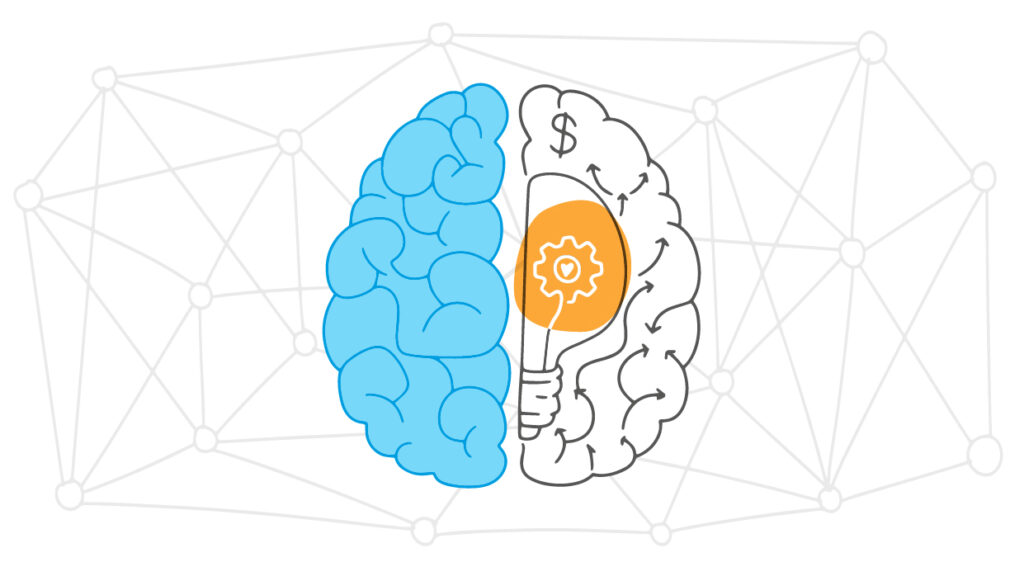Think about the last time you went to buy a product for which you had no reference at all.
For example, imagine you are on a trip to Egypt and want to buy some rice. You arrive at the supermarket, look for rice and find that there are about 20 different varieties and all the information is in Arabic.
You don’t speak Arabic, and you can’t recognize any rice. How do you choose the rice you want to buy?
You might try to compare prices, weights and packaging. But it is complicated to make comparisons between 20 options, and you start to get frustrated because you can’t make a decision.
You start asking yourself: Which one is better? Which is the one I need? You realize that 15 minutes have gone by, and you haven’t decided, so you grab the rice that is on sale.
You get home, and you’re not satisfied because it wasn’t what you wanted.
But what if I told you that there is a science that can facilitate this kind of decision-making and smooth the consumer experience so they can make a much more efficient and satisfying choice?
It exists, and it’s called Behavioral Economics.

Behavioral Economics (BE) is a scientific discipline that combines microeconomics and psychology to gain a deep and realistic understanding of consumer behavior.
The discipline was born with researchers such as Daniel Kahneman and Richard Thaler and studies the cognitive processes behind decision-making rigorously and methodologically so that it can be applied to improve the process.
Contrary to what is believed in traditional economics, BE argues that people are irrational in most of their decisions and are strongly influenced by their environment. Researchers say that we rely on two systems to make decisions. System 1 is faster and less rational, while system 2 is more rational but also slower.
Most of the time, we are using system 1. A person makes on average 35,000 decisions a day, so the brain seeks energy efficiency to solve them effectively and quickly.
That is why our brain takes mental shortcuts, known by heuristics that usually make this process effective but can also lead to errors in judgment with biases.
There are more than 200 known biases and heuristics that can affect decision-making.
Understanding how the consumer’s cognitive processes work can identify what mental problems customers face and solve them.
If we take the example of the supermarket, a behavioral economist would be able to identify cognitive overload and lack of referrals. To solve this problem, we could use a variety of techniques, such as breaking down rice options by category and perhaps even by the type of recipes indicated for each type of rice, using comparison tables to help decide, or adding labels that standardize prices per kilo, among many other things.
In the same way, behavioral economics could help understand why consumers do not complete the order or why they intend to save but fail to do so.
It is increasingly common to find companies applying behavioral economics to business with nudges and choice architecture.
Nudges help customers make efficient and wise decisions, while choice architecture is about organizing the context so that customers can make better decisions. But it’s not just limited to supermarkets.
We are talking about decisions, and decisions are everywhere! For example, it can be applied to HR to improve employee satisfaction, improve products and service design, help people make better financial decisions, improve user experience, or even in healthcare and public policies. All this is done by applying scientific knowledge and validating it in each context with structured methodologies.
Often, idealized solutions to the problems encountered are validated with A/B testing so that business decisions are based on actual data and not just intuition. So when it comes to using behavioral economics in business, it can add value to companies. Why not make better use of it?
© Copyright 2023. Netmind. All rights reserved.
Por favor, proporciona la siguiente información para ayudarnos a personalizar la solución.
Netmind España
Barcelona +34 933 041 720
Madrid +34 914 427 703
Nos puedes encontrar de:
Lunes – Viernes, 9:00-18:00 (GMT+1)
¡Te ayudamos!
info@netmind.net
¿Dudas sobre servicios/formaciones?
comercial@netmind.es